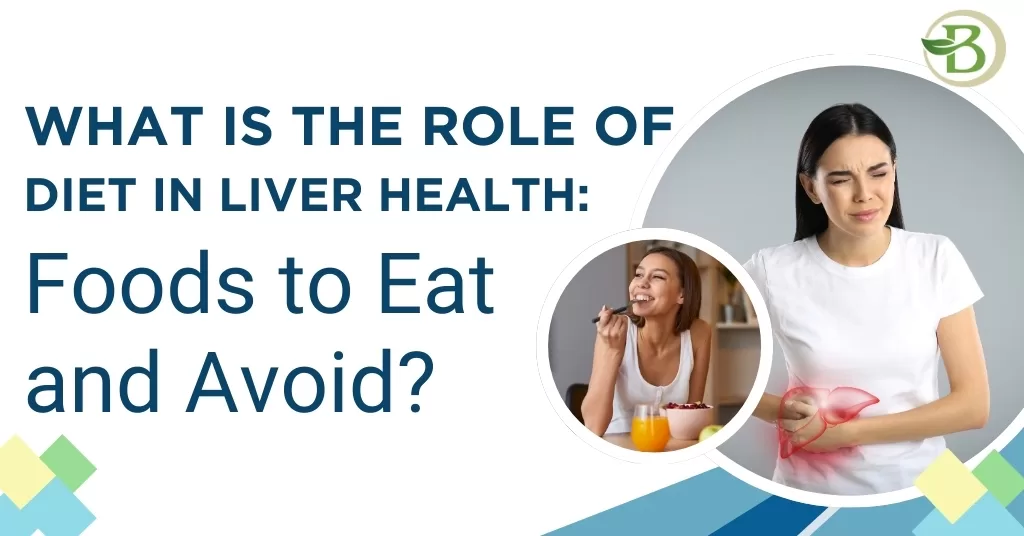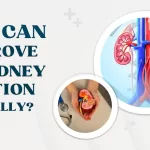The Connection between Diet and a Healthy Liver
The liver acts as the body’s main detox Centre, playing a vital role in maintaining our overall well-being. It carries out essential functions like processing nutrients, filtering out toxins, and supporting metabolism. Taking care of our liver is super important, and what we eat plays a big part in how well it functions. This blog discusses the importance of diet in liver health, pointing out which are foods good for liver and which ones to stay away from.
The Liver: A Brief Overview
Before delving into dietary details, it’s crucial to comprehend the functions of the liver. This organ, weighing roughly three pounds, is located in the upper right part of the abdomen. It performs over 500 crucial tasks, some of which include:
- Detoxification: Getting rid of harmful elements in the blood through filtration
- Metabolism: Converting carbohydrates, lipids, and proteins into energy that our bodies can use
- Storage: Keeping vitamins, minerals, and glycogen on hand for a quick energy boost
- Synthesis: Generating bile to assist in digesting food and producing proteins necessary for blood clotting
Given these vital functions, a healthy liver is indispensable for overall well-being.
Foods to Eat
Incorporating liver friendly foods into your diet is beneficial for keeping the organ in top shape. These foods support liver function, promote detoxification, and prevent hepatic diseases.
Leafy Greens: Packed with chlorophyll, spinach, kale, and other leafy greens work wonders in neutralising toxins and harmful chemicals. By increasing bile production, they enhance the liver’s detoxifying abilities, ensuring that waste is effectively removed from our organs and blood.
Cruciferous Vegetables: Broccoli, brussels sprouts, cauliflower, and cabbage are packed with glucosinolates, which are known to boost liver enzyme production. These enzymes play a paramount role in eliminating harmful substances like carcinogens and toxins, ultimately lowering the chances of developing liver cancer.
Garlic: By stimulating enzymes, garlic assists in the detoxification process by removing toxins from the body. With allicin and selenium, garlic aids in liver cleansing and enhances the organ’s ability to filter out harmful residues from the digestive system.
Berries: The liver can benefit greatly from the antioxidants found in blueberries, cranberries, and other berries. These antioxidants, called polyphenols, play a crucial role by safeguarding our liver, reducing inflammation, and shielding its cells from oxidative stress.
Fatty Fish: Omega-3 fatty acids extracted from salmon, mackerel, and sardines are super beneficial. They help reduce inflammation and lower fat levels, which is crucial for preventing non-alcoholic fatty liver disease (NAFLD).
Nuts: Walnuts are packed with glutathione and omega-3 fatty acids, which are great for supporting liver health by aiding in detoxification and improving enzyme levels.
Olive Oil: Olive oil, rich in healthy fats, aids in reducing fat levels and increasing enzyme levels, ultimately supporting efficient liver function, particularly in those with fatty liver disease.
Green Tea: Catechins, a type of antioxidant abundant in green tea, perform a critical role in enhancing hepatic function and safeguarding it against diseases. By incorporating green tea into your daily dietary routine, you can potentially lessen the risk of hepatic cancer and maintain enzyme levels.
Citrus Fruits: Vitamin C and antioxidants in lemons, limes, and grapefruits are essential for supporting the liver in detoxification. Grapefruit, specifically, contains naringenin and naringin, compounds that help safeguard the liver from inflammation and fibrosis.
Turmeric: Curcumin, found in this amazing golden spice, is a powerful antioxidant and anti-inflammatory compound. It does wonders for your health by boosting detoxification and reducing oxidative stress.
Foods to Avoid
Just as certain foods for liver disease can be beneficial, others can be harmful. Avoiding or limiting these foods is crucial for maintaining liver health and preventing diseases.
Alcohol: Excessive alcohol intake is the main culprit behind organ damage. It can result in hepatic steatosis, inflammation, and ultimately cirrhosis. Cutting back on alcohol is crucial for safeguarding your health.
Sugary Foods and Beverages: Too much sugar in your diet can be detrimental, potentially leading to hepatic steatosis. Munching on sugary snacks, drinking sodas, and indulging in desserts can contribute to weight gain and insulin resistance, which can worsen the health of your liver.
Fried Foods: Foods that contain high saturated fats, such as fried foods, have the potential to cause fat to accumulate in the liver. This can result in it’s inflammation and damage, which can contribute to conditions like NAFLD.
Processed Foods: The high levels of unhealthy fats, sugars, and additives found in processed foods can cause liver damage, leading to inflammation and fat buildup.
Salt: Excessive salt consumption can result in fluid retention and higher blood pressure, which can strain your liver. To maintain its health, it’s important to reduce your salt intake by steering clear of processed and packaged foods.
Red Meat: While it’s not a must, it can be helpful to limit your consumption of red meat. The reason is that red meat contains high levels of saturated fats, which can be quite harmful when consumed in large amounts.
Trans Fats: Trans fats, typically found in baked goods, snack foods, and margarine, have been linked to an increase in liver fat and can contribute to its dysfunction. To safeguard it, it’s best to steer clear of foods that contain hydrogenated oils.
Certain lifestyle habits, in addition to liver diet, can significantly impact overall health. Incorporating the below mentioned tips for healthy liver into your daily routine can further enhance your organ’s function and longevity.
- Stay Hydrated
- Exercise Regularly
- Avoid Toxins
- Maintain a Healthy Weight
- Avoid Illicit Drugs and Unsafe Practices
- Regular Check-ups and Screenings
Conclusion
The liver is an extraordinary organ, performing myriad tasks essential for our survival and well-being. By making mindful dietary choices, we can support our liver’s health and function. Embrace a diet good for liver that enhances natural liver detoxification and reduces inflammation while avoiding those that contribute to its damage and fat accumulation. Coupled with healthy lifestyle practices, these dietary habits can ensure your organ remains robust and efficient, safeguarding your health for years to come.
Your liver works tirelessly for you—it’s time to give it the nourishment and care it deserves. Always remember, A healthy liver is a cornerstone of a healthy life.
Management and Treatment
Homeopathy, a holistic system of medicine developed over two centuries ago, has gained recognition for promoting optimal liver health. This alternative medical practice leverages natural substances in minute doses to stimulate the body’s self-healing mechanisms. Homeopathic treatment liver disease aims to detoxify it, enhance its function, and address underlying issues such as hepatic steatosis, hepatitis, or cirrhosis. These remedies are often prescribed based on the person’s unique symptoms and overall health condition.
Bharat Homeopathy, a leading homeopathic hospital, has significantly contributed to the successful treatment of liver diseases. Their personalised treatment plans, grounded in thorough patient assessments and tailored remedies, have shown promising results. Many liver patients have reported substantial improvements and, in some cases, complete recovery. Bharat Homeopathy’s approach not only alleviates symptoms but also strengthens the liver’s resilience, promoting long-term health and well-being. Their success stories highlight the potential of homeopathy in managing and curing hepatic conditions, offering a safe and effective alternative to conventional treatments.


